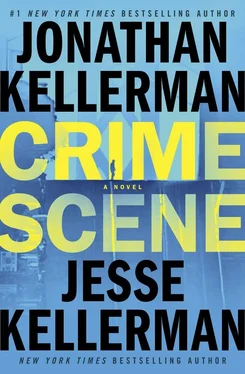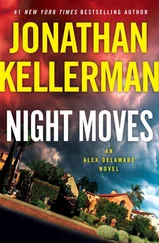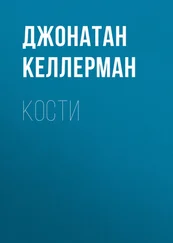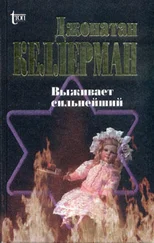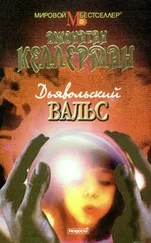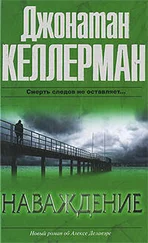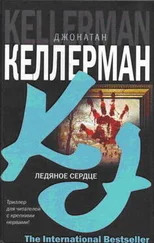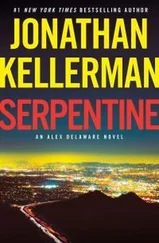Back at the hotel, the heater and the window had fought to a comfortable stalemate. I showered off a day’s worth of driving, then called Nate Schickman to tell him the news.
He congratulated me, asking if I could collect a DNA sample from Triplett.
“Let me see first how’s his state of mind,” I said. “I’m not sure trying to swab him is the best way to establish trust.”
“Gotcha,” he said. “Listen, I’ve been thinking on what we do next. Say we get everyone on the same page, it pans out, we wind up with enough to show it wasn’t Triplett. That only takes us so far. Overturning a conviction?”
“Bigger deal.”
“Exactly. So I was thinking. There’s this group over at the law school works on these sorts of cases. We could throw it to them.”
“Your bosses okay with that?”
“Ordinarily, hell no. Right now? You know how shit is.”
I did. Trust was at a low ebb. Even a cop like me, largely removed from the grind of the streets, felt it. I thought about the woman in Berkeley who’d cussed me out, flipped me off, called me a fascist. Both sides felt misused, hamstrung, frustrated, spooked.
“This prof, Berkowitz, runs the place,” he said. “It’s not like we’re her favorite people in the world. Or vice versa, frankly. Now imagine we bring her this on a platter.”
“Building bridges,” I said.
“Ames is a politician at heart. That’s as good a reason as any for him to sign off.”
“Plus he gets to put Bascombe on a spike,” I said.
Schickman laughed. “Yeah, that too. So what do you say?”
“Fine by me.” Then, thinking of Vitti, I said, “You’ll have to keep my name out of it.”
“No way, dude. I’m not taking credit for your work.”
“Still plenty left to do,” I said. “I’ll call you tomorrow, after I’ve met with Triplett.”
“Enjoy Reno,” he said. “Stay classy.”
The price of my room included the breakfast buffet. Eight a.m., Karen Weatherfeld met me in the restaurant, nursing tap water while I feasted on tough eggs and pale toast.
“I wish Wayne had come to me sooner,” she said. She looked exhausted and sounded anguished. “I had no idea things had deteriorated to this point.”
“I’m sure he would’ve called if it became an emergency.”
She waved, denying herself forgiveness. Then, reconsidering, she said: “The fact of the matter is, Julian has done very well. As well as you can expect for someone with schizophrenia. If that’s really what he has.”
“You don’t think so?”
“I wish it was so clear-cut,” she said.
I thought about Alex Delaware’s reply when I asked what was wrong with Triplett.
It would be convenient if everyone fit into a diagnosis. Or if a diagnosis was all you needed.
“You have two kinds of symptoms,” she said. “Positive, like hearing voices or paranoia, and negative, like social withdrawal or diminished affect. Julian has always shown more of the latter. Certainly he’s shy.”
“That’s what comes across on the tapes.”
She nodded. “It could simply be that he’s an extreme case of social anxiety, or that he doesn’t understand social cues the same way most people do. To me it feels more appropriate to put him on the autism spectrum. Even that’s not a perfect fit.”
“He hears voices,” I said.
“Does he, though?”
I looked at her with surprise.
“He never complained about it to me,” she said. “Personally? I witnessed what you’d regard as irrefutable proof. Mumbling to yourself when you’re experiencing stress isn’t quite the same as being plagued by an internal monologue that you can’t turn off. I’m not a psychiatrist, granted. But, again, it feels like we have a hammer and we’re seeing nails everywhere.”
He’s always been like that. Not dangerous. Just... himself.
Kara Drummond had said that.
I said, “His mother described him as afraid of his own shadow.”
“That’s definitely true,” Weatherfeld said. “He was — is — extremely anxious. You could label it paranoia. It’s a fine line. If it were me, I’d probably be paranoid, too, at least by now. Think about what he’s been through.”
Enough to induce a false confession.
Enough to hide and stay hidden.
I said, “Why keep him on antipsychotics, then?”
“Because they make him feel better,” she said. “Risperdal helps with other things, too, like mood. Understanding the mechanism isn’t as important as knowing that it works for him.”
“Does he see a psychiatrist?”
She shook her head. “In the beginning we wanted to keep a low profile. If I’d noticed anything worrying I would have insisted. In fact, later on I tried to refer him for a checkup. Meds aren’t a silver bullet. There are side effects, and it pays to recalibrate every once in a while. But he refused. He has a hard time trusting people. It was hard enough for him to learn to trust me.”
“I can’t blame him for that.”
“Me neither.” She clutched her water. “It was supposed to be temporary.”
“Him being up here.”
“Just till things calmed down. Walter and I never explicitly discussed the terms, or how long it would last. If I had any idea it’d turn into a permanent arrangement, I never would’ve agreed. You have to realize: after Nicholas died, Walter was in a frenzy. He was absolutely convinced the police would come swooping down on him, or Julian, or both of them. Talk about paranoia... He had me convinced, too. All I had to go on was what he told me.”
“Which was what?”
“There was an accident,” she said. “It looked bad for Julian.”
“He didn’t say Julian was involved.”
“No. Walter was adamant about that.”
“Did you and Julian ever discuss him going back?”
“It never came up. In the beginning I was more concerned with short-term goals, managing his stress level. Once he did get settled, a certain amount of inertia set in, I guess.” She paused. “He never raised the subject, either. For the first time, he was living on his own terms.”
Point taken. What did Triplett have to return to in the East Bay?
People did love him, but love didn’t guarantee safety.
I said, “What was the deal with the tapes?”
“Walter’s idea. He wanted to hear Julian’s voice, to know he was okay.”
But she had broken eye contact. I said, “Any other reason?”
She said, “I’m not going to say he had ulterior motives. He really did care about Julian. Immensely.” She pinched the bridge of her nose, sighed. “He wanted to write a book.”
“Walter did?”
“Explain it all. The murder, the trial. Put the record straight. He thought he could fix everything.”
The manuscript.
an alternative explanation presented itself
She faced me. “He meant well.”
I said, “What was it that changed his mind?”
“I’m not sure there was one specific moment,” she said. “He got to know Julian. That’s a process that takes a long time. It requires serious dedication.”
“Let me put it another way,” I said. “Did he learn something from Julian that would have caused him to shift his attention to Nicholas Linstad? Confront him?”
“I don’t know,” she said. “Again, I doubt it was so cut-and-dried. Few things in life are. And, believe me, Walter could be... fickle. With his affections.”
Everyone disappoints in the end.
She cleared her throat softly, drank water, moved her lips against each other. “As far as the book’s concerned, I think he ran out of steam once I stopped recording. By then I was seeing Julian far less often. He didn’t need me as much. He had a routine. Unconventional, but stable. In my experience, Deputy, much of mental illness is about losing autonomy. When someone starts to regain that, you want to encourage them.”
Читать дальше
